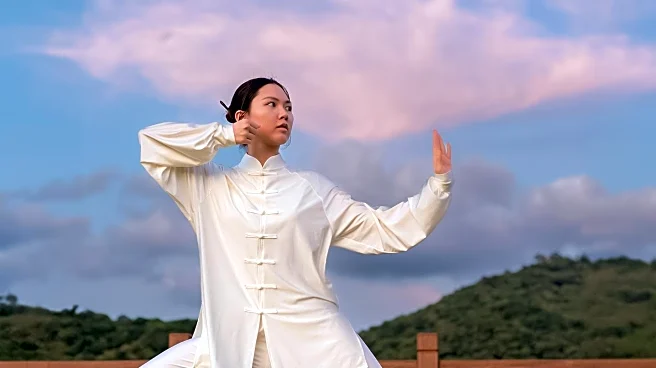What's Happening?
Recent studies have highlighted the cognitive benefits of Tai Chi, an ancient Chinese practice, after just eight weeks of regular sessions. Participants engaging in Tai Chi showed improvements in memory, focus, and mental flexibility, with MRI scans indicating
increased brain volume in areas responsible for these functions. Tai Chi combines gentle physical movements with mindful attention, which has been shown to enhance executive function and memory, particularly in older adults and those with mild cognitive impairments. The practice is accessible to people of all ages and fitness levels, requiring no special equipment.
Why It's Important?
The findings underscore Tai Chi's potential as a non-invasive, cost-effective method to improve cognitive health, offering an alternative to high-intensity workouts and brain-training apps. This could have significant implications for public health, particularly in aging populations, by potentially reducing dementia risk and enhancing quality of life. The practice's ability to improve cognitive function and mental resilience may also support individuals with chronic conditions, promoting independence and well-being.
What's Next?
As Tai Chi gains recognition for its cognitive benefits, it may see increased adoption in wellness programs and healthcare settings. Long-term practitioners could experience even greater brain health improvements, suggesting that sustained engagement with Tai Chi might be beneficial. Further research could explore its impact on other cognitive disorders and its integration into therapeutic practices.
Beyond the Headlines
Tai Chi's holistic approach, blending physical, cognitive, and social elements, may foster community engagement and mental health improvements. Its accessibility makes it a viable option for diverse populations, potentially influencing cultural perceptions of exercise and wellness.
















